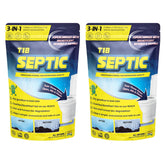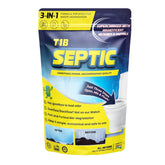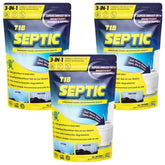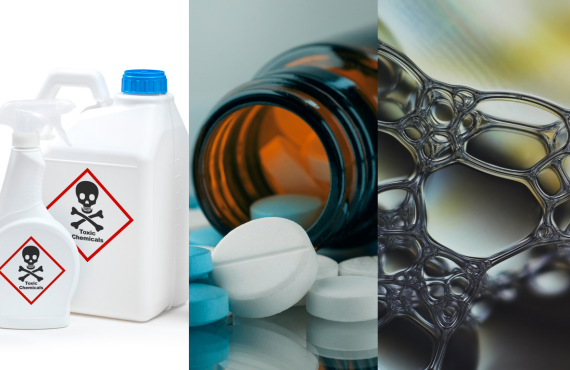How do chemicals, antibiotics, and surfactants in human waste affect septic tank health, and how does adding a strong bio-enzyme support the tank?
The presence of various chemicals, antibiotics, and surfactants in human waste can negatively impact the health of septic systems and the broader environment.
Impact on Septic Health -
Household chemicals, such as those found in cleaning products, can be toxic to the generic microbial community in septic tanks. These generic microbes are essential for breaking down organic matter. When harmed, the efficiency of waste degradation decreases, leading to potential system failures, such as clogging or overflow. Further antibiotics in human waste can kill the generic beneficial bacteria in the septic system. Surfactants are found commonly in detergents and soaps, and they can disrupt the generic microbial activity in septic tanks. They may also emulsify fats, making them harder to break down, which can lead to fat build-up and blockages in the system.
By fortifying septic tanks with specially adapted microbes and targeted enzymes, it is possible to counteract the negative effects of various contaminants found in human waste, thus maintaining the health and efficiency of the septic system and mitigating environmental impacts.
By introducing robust microbes that are resistant to the harmful effects of household chemicals and antibiotics, the overall microbial health of the septic tank can be maintained. These specially selected microbes can thrive despite the presence of toxic substances and their ability to secrete active enzymes does not drop. Bioproducts that have added enzymes play a crucial role in breaking down complex organic molecules more efficiently and faster. For example, enzymes that degrade fats (lipases) can prevent the build-up that leads to blockages, while other enzymes can specifically target and break down the molecular structures of surfactants. The combination of these robust microbes and enzymes ensures that the septic system works more efficiently & they also support the generic microbes already present in the tank. They accelerate the degradation of harmful substances, reduce maintenance costs, and extend the lifespan of the septic system. Effective degradation of chemicals, antibiotics, and surfactants before the sewage/gray water leaves the septic tank means that these potentially harmful substances are less likely to enter the environment. This helps protect soil and water quality and reduces the risk of harm to aquatic life and other environmental components.








Leave a comment
Please note, comments need to be approved before they are published.